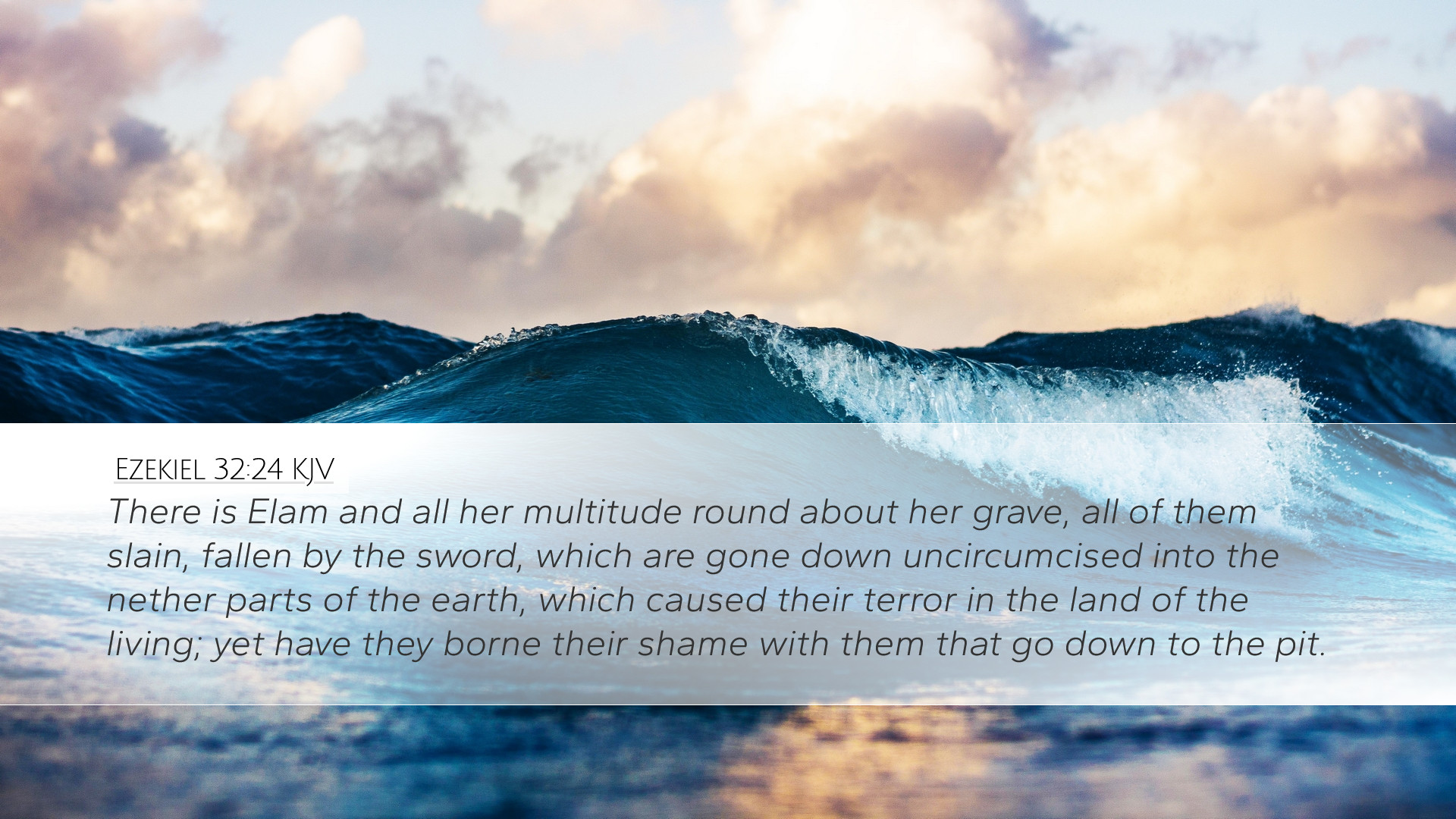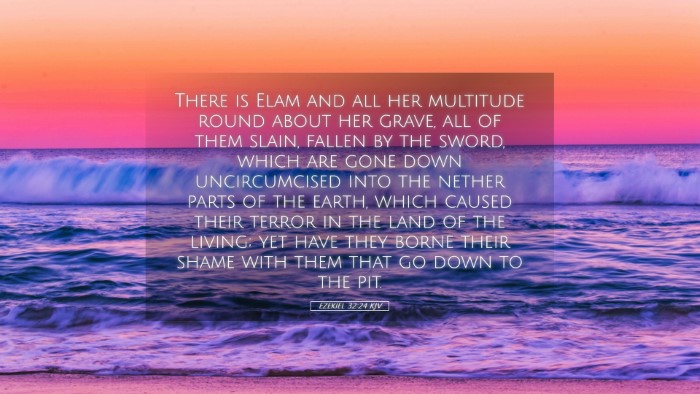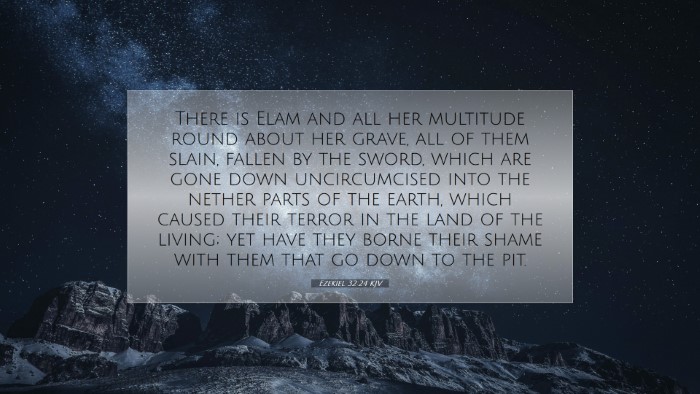Ezekiel 32:24 Commentary
Bible Verse: Ezekiel 32:24
"There is Elam and all her multitude round about her grave, all of them slain, fallen by the sword, which are gone down uncircumcised into the nether parts of the earth, which caused their terror in the land of the living; yet have they borne their shame with them that go down to the pit."
Context Overview
The verse is part of a larger passage where Ezekiel prophesies against various nations and cities, particularly focusing on Egypt and its allies. Here, Elam, a region historically associated with the Persians, is addressed. Ezekiel’s message reveals God's judgment and the reality of death that the nations face due to their rebellion and unfaithfulness.
Verse Analysis
1. Elam and Its Multitude
The reference to Elam signifies not only a geographical location but also its historical and cultural significance in the ancient Near East. Elam plays a role in the larger narrative of God’s judgment upon nations:
- Historical Context: Elam was known for its significant contributions to early civilization but also for its idolatry and conflicts with Israel.
- Theological Implication: Elam's mention underscores the inclusivity of God’s judgment; no nation is beyond the reach of divine assessment.
2. The Grave and the Slain
The imagery of graves and those who have fallen by the sword evokes a strong sense of finality and loss. The grave here represents:
- Judgment: The fate of Elam's warriors serves as a warning about the consequences of oppressing God's people and living in sin.
- Collective Identity: The phrase "all her multitude" indicates a shared fate, reflecting the idea that collective actions lead to collective judgment.
3. Uncircumcised and the Pit
Ezekiel’s mention of the uncircumcised conveys a powerful metaphorical meaning:
- Covenantal Significance: Circumcision, a sign of belonging to God’s covenant, is emphasized here to mark those who are outside of God’s favor.
- Spiritual Death: To go down uncircumcised signifies spiritual death and separation from God, illustrating a profound loss of identity and hope.
Theological Themes
1. Divine Judgment
This passage reinforces the theme of divine judgment prevalent throughout Scripture. Both Matthew Henry and Albert Barnes highlight that God's judgments serve not just as punishment but as a means of demonstrating His holiness and righteousness before the nations.
2. The Nature of Death
Commentaries by Adam Clarke discuss the nature of death as it pertains to God’s people versus the wicked. The fate of Elam draws a stark contrast between those who are in covenant with God and those who are not:
- Hope vs. Despair: The narrative provides hope for the faithful, contrasting their eternal destiny with that of the faithless.
- Awareness of Accountability: This passage serves as a reminder of the seriousness of sin and the reality of accountability before God.
3. The Universality of God's Rule
The mention of Elam, along with other nations earlier in Ezekiel, indicates that God's sovereignty extends over all humanity, transcending national borders.
Application for Today
1. Understanding Judgment
This text speaks to the contemporary believer about God’s righteous judgment and the importance of living in accordance with His will. Pastors may use this to encourage repentance and faithfulness among congregants.
2. Hope in Chaos
In a world that often seems chaotic and overwhelmed by evil, this passage reassures believers of God’s ultimate authority and justice.
3. Reflecting on Covenant Identity
The significance of being part of God’s covenant—through Christ for the New Testament believer—needs continual emphasis. The image of being 'uncircumcised' should compel believers to live out their faith actively in a way that reflects their identity in Christ.
Conclusion
Ezekiel 32:24 offers profound insights into the nature of sin, judgment, identity, and hope in God’s sovereignty. As pastors, students, theologians, and scholars study this passage, they should seek to apply its lessons earnestly to their lives and ministries, ensuring that the themes of justice, accountability, and grace are woven into their teaching and practice.


